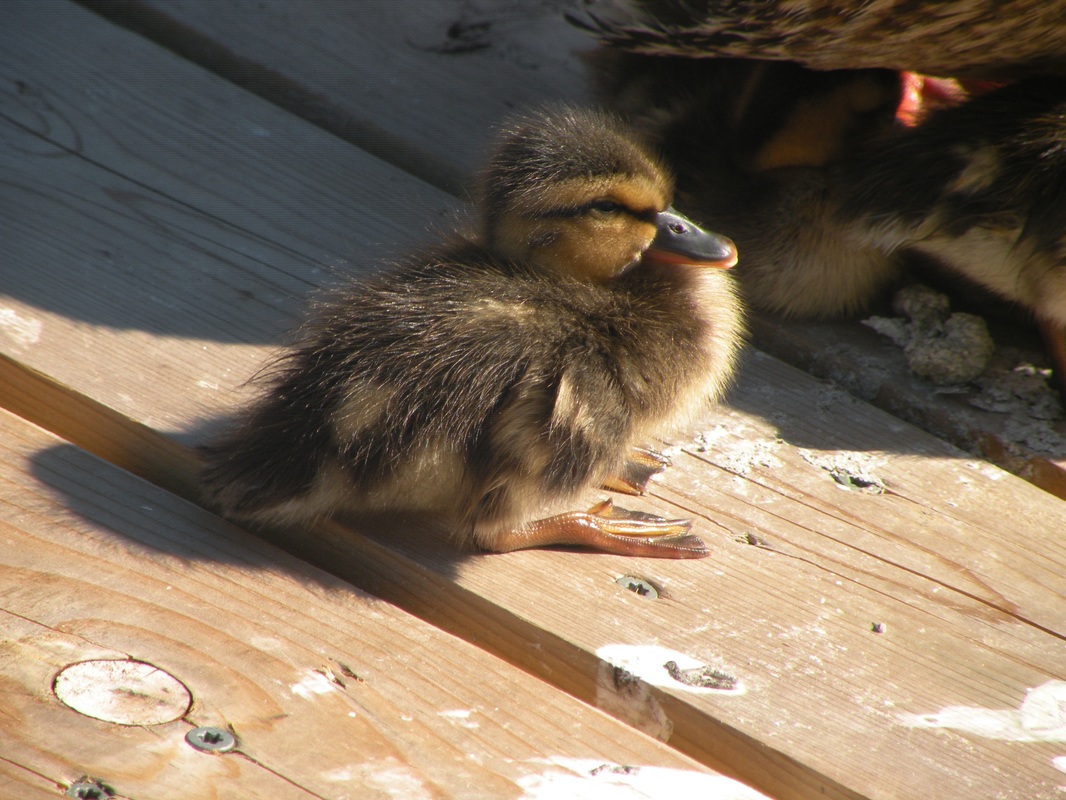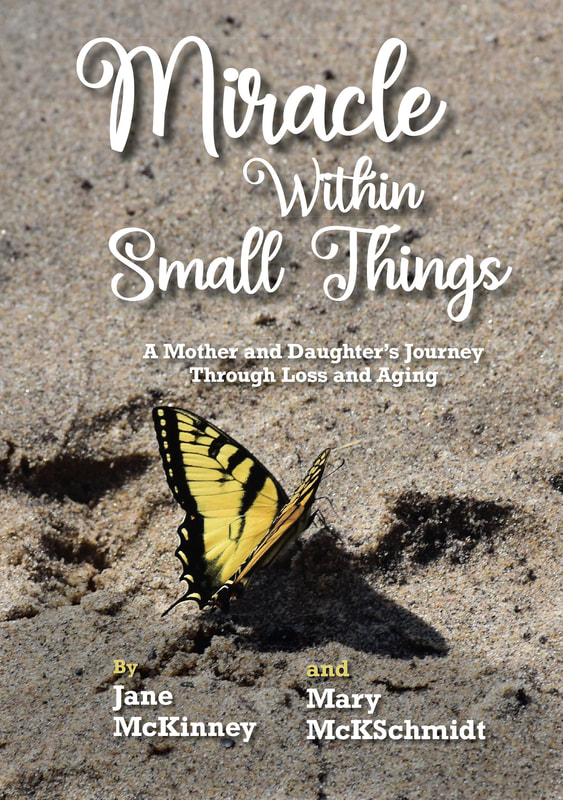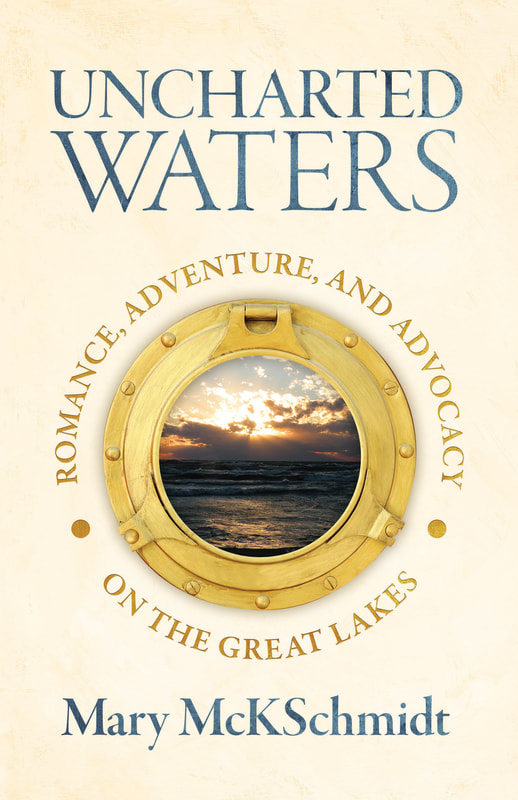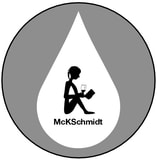midst of vigorously scrubbing our sailboat. The twenty-nine-year-old boat’s fiberglass is porous, quick to absorb the tiny specks of blue spider droppings and the malt-colored splats of bird poop. It is not the kind of filth easily erased by the expensive, environmentally friendly cleaners I use. Perhaps they work on newer boats. Rubin’s solution is to use tire spray, Soft Scrub® toilet bowl cleaner, and to mix bleach with commercial boat wash.
“You can’t use those! All that stuff goes straight into the lake!” But I have no facts to influence change, just hunches. And hunches, in our family, don’t count for much. I suspect we boaters have a lot to do with the quality of water in our harbors based on how we paint the hulls, treat our gray water and bilges, and fuel and clean our boats. And yet, I don’t recall in the eleven years I’ve been studying the Great Lakes, seeing evidence-based recommendations on “best practices” that might influence the 4.3 million registered Great Lakes boaters. Upstream, in the Macatawa Watershed, a team of farmers and scientists is working to implement and monitor best practices in farming. Their goal is to reduce the excess sediment, nutrients, and algae fouling Lake Macatawa. Why not start a team of interested boaters, marinas, and scientists to see what affect we might have on Lake Macatawa and the channel of water flowing into Lake Michigan? And if there are no effective “green” cleaning agents, why not tap the science and manufacturing expertise in Michigan to create some? Never shy when it comes to restoring Lake Michigan, I key up my questions with Hope College scientists and Project Clarity leaders (whose focus is on remediating water quality issues in Lake Macatawa and the Macatawa Watershed). Their enthusiastic response is reaffirming! A research plan is currently under development that will involve Hope College students and professors, Project Clarity experts, and local boaters and marinas. If you are interested in being on the team, please contact me. To learn more about the ongoing negotiations between the idealist (me), and the pragmatist (Rubin), read my story “Searching for Common Ground” in the August issue of Sail magazine. Note: This month's title courtesy of Rubin and Dragnet’s Sgt. Joe Friday.
8 Comments
Sandy Hack
7/4/2016 12:48:38 pm
This reminds me of the battlefield at our cabin, that we owned with another couple. We needed a lawnmower and I thought we should get a reel lawnmower. The men thought the usual motorized push mower would be perfect. I lost the battle. I fought for the lake but lost the battle. It's a big war out there and I am hoping environmental activists win most of the ever-present battles.
Reply
Lynn Smith
7/4/2016 12:55:45 pm
Mary, you have (again) really touched a nerve. I think it would so great if you would include cleaning-supply recommendations not only on your blog, but in your column for the MBYC. I'm having great luck with a solution of water, white vinegar, rubbing alcohol and essential oils, but it might not measure up to Rubin's standards. A secondary benefit is that the bugs hate it! Thank you for, once again, tackling a touch subject. Bravo!!
Reply
Lynn Smith
7/4/2016 12:58:26 pm
OOPS! I meant to say "tough" subject, but maybe the use of the word "touch" is okay relative to our water. We can't let more deadly chemicals touch it.
Reply
7/4/2016 01:12:04 pm
I had never thought much about cleaning a boat. I live in the desert, so why would I? I guess I assumed you'd just hose it off.
Reply
Eric Stemle
7/4/2016 05:35:30 pm
I just finished reading Shawn Achor's "The Happiness Advantage" in which he describes the "Tetris Effect." Folks who play that game a lot start to see the world much as a giant version of the game, and Achor applies the phenomenon to any situation where we focus on something until our brains are rewired to see things through that lens. Teresa now has a bird tetris, and she points out (accurately) that I tend to see golf course holes when I look at natural landscapes. Mary, your tetris is the lake, and thank god, it is. Because of your mindfulness, you are aware of how our actions directly or indirectly affect the water. Yes, facts are important, but how often do we fail to gather them because we don't follow our hunches? Intuition can lead to research, and from there we can act, much as you have done beautifully by contacting the Hope College and Project Clarity crews.
Reply
Mary Ellen Miller
7/5/2016 10:42:17 am
Excellent blog entry, Mary: effective without being preachy. Such a perfect "balance" enhances credibility among your readers, even those of us who do not have boats. Thanks for your vigilance and especially for the concrete solutions you offer.
Reply
Karen
7/5/2016 11:01:14 am
I'm a little nervous for Rubin, because no doubt you'll find your facts, Ma'am.
Reply
Shirley A Goodger
7/6/2016 07:16:02 pm
I have to say Mary - you brought humor to a serious matter, which is the perfect way to capture and entice an audience to start thinking about another way to shine up "our" beloved boats and at the same time, respect our waters! This could change the entire concept of RUBINIZING!!! P.S. GREAT title Rubin!!!
Reply
Leave a Reply. |
From briefcase to pen, paper and camera, one woman's journey to influence
how we care for the environment, our seniors, each other. Available
from your local bookstore or online retailer 
The Ideal Gift Tiny Treasures, a collection of wildflower photographs and poetic prose, available by contacting me. The 2nd Edition of Tiny Treasures is designed for use on PCs, tablets, and phones and is available at online stores. To learn more, click on the Ibook/Ebook button below:
|




 RSS Feed
RSS Feed
